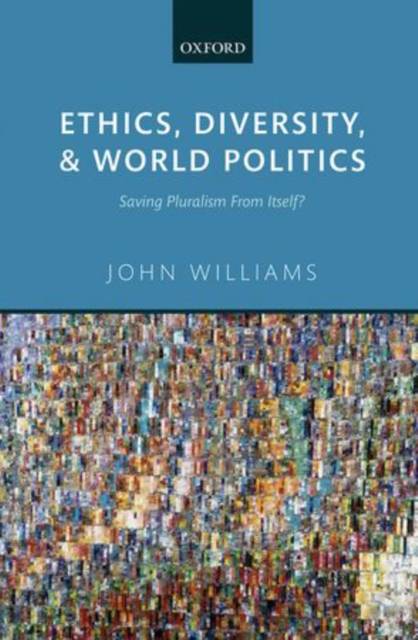
- Afhalen na 1 uur in een winkel met voorraad
- Gratis thuislevering in België vanaf € 30
- Ruim aanbod met 7 miljoen producten
- Afhalen na 1 uur in een winkel met voorraad
- Gratis thuislevering in België vanaf € 30
- Ruim aanbod met 7 miljoen producten
Zoeken
Ethics, Diversity, and World Politics
Saving Pluralism from Itself?
John Williams
Hardcover | Engels
€ 225,95
+ 451 punten
Omschrijving
Ethics, Diversity, and World Politics argues for the importance of the diversity of human ethical systems in world politics, defending the vitality of a 'pluralist' position in debates about how to ethically assess and respond to political challenges. Rooted in the 'English School' tradition of international relations theory, the book offers the first fundamental reformulation of the 'traditional pluralism' that fails to offer a persuasive defence of the normative desirability of ethical diversity in human affairs, resulting in a pluralist ethic that is statist, conservative, and unable to engage effectively with contemporary world politics. The book develops an alternative account of 'revived pluralism', rooted in a defence of the normative desirability of ethical diversity that draws upon political philosophy, political theory, and sociology, to establish a far more rigorous methodological basis for a pluralist position, whilst also enabling assessment of the limits of defensible diversity.
Specificaties
Betrokkenen
- Auteur(s):
- Uitgeverij:
Inhoud
- Aantal bladzijden:
- 232
- Taal:
- Engels
Eigenschappen
- Productcode (EAN):
- 9780198733621
- Verschijningsdatum:
- 2/06/2015
- Uitvoering:
- Hardcover
- Formaat:
- Genaaid
- Afmetingen:
- 160 mm x 234 mm
- Gewicht:
- 566 g

Alleen bij Standaard Boekhandel
+ 451 punten op je klantenkaart van Standaard Boekhandel
Beoordelingen
We publiceren alleen reviews die voldoen aan de voorwaarden voor reviews. Bekijk onze voorwaarden voor reviews.











